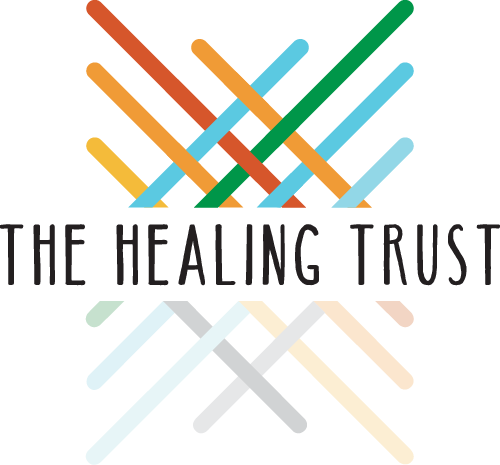Curious about our Advocacy Grants Program? Check out the answers to these FAQs below.
What kinds of advocacy do you fund?
The Trust funds systems change advocacy, meaning advocacy that is directed towards institutions and organizations to change policy, procedures and practice to improve access to health care services and/or the prevention and mitigation of Adverse Childhood Experiences. The institutions/organizations can be government, nonprofit or for-profit entities. Systems change advocacy goes beyond those an organization could serve directly and is meant to serve a broader population.
For example, an organization may work with victims of a crime such as sexual abuse or domestic violence to understand the legal process and help victims navigate the system. This would be an example of individual advocacy – advocating for and with the clients they serve to improve their individual experience with a system. This is important work that may be eligible for our other grant programs but would not be eligible for the Advocacy grants program.
In contrast, an organization my work with victims of a crime such as sexual abuse or domestic violence in a similar way. Additionally, they work with organizations to change their processes for investigating and reporting such crimes and/or propose and work to pass bills to change the systems all crime victims encounter. The latter two activities go beyond those they serve directly through individual advocacy and work to address the systems all crime victims may encounter. This would be eligible for Advocacy grant funding.
Do you fund individual advocacy, like victims’ advocacy and child advocacy?
While important, the advocacy grants program does not fund individual advocacy work, such as victims’ advocates or child advocates. The program is intended for advocacy that addresses an entire system for a broader population.
Do you fund awareness raising and education?
While education and awareness are advocacy activities, to qualify for the program, the advocacy work must go beyond raising awareness and outreach. In addition, a nonprofit must then work with organizations and institutions to change their policies and practices based on what they’ve learned. For more information about our philosophy on this, please check out this article from Stanford Social Innovation Review.
Can I use this funding to lobby?
As a private foundation, we are prohibited from earmarking funding for lobbying, under the IRS’s definition of lobbying. Therefore you must use other unrestricted net assets to cover any grassroots or direct lobbying expenses.
Can I hire a staff member with this funding?
The purpose of the program is to build an organization’s or a collaborative’s capacity to conduct effective advocacy work. While the unrestricted funding can be used to pay staff who are working on advocacy efforts, the work is meant to go beyond any one person. Consequently, we are less likely to fund a proposal that relies on a single person to carry out the advocacy work. We want to see the organization – from various staff to board to clients – engaged in the advocacy process and work.
What do you mean by health care access?
We generally mean addressing systems that provide individuals better access to clinical services. Some examples include but are not limited to Medicaid expansion, working with insurers to change their policies and practices to cover more clinical services, or increasing funding for the safety net and/or charitable care.
Is working with the government to increase our funding considered advocacy?
We would not consider this an appropriate advocacy strategy for the purposes of this program. While increasing funding overall for a sector is appropriate, increasing funding for an individual organization would not be considered systems change advocacy.
Do you fund national organizations?
Potentially. If the national organization has a state office in one of the 40 counties in Middle Tennessee, keeps separate financials, serves Tennessee residents, and has a Middle Tennessee based board of directors, then a national organization may be eligible.
Does it matter if we are doing local, state or federal advocacy?
No, it does not matter as long as you are working on systems change advocacy that improves the lives of Tennessee residents with improved health care access and/or the prevention and mitigation of Adverse Childhood Experiences.
The range of $20,000-$100,000 a year is a big difference. How do you I determine the appropriate range?
The average funded amount from our last round of three-year funding was $50,000/yr. Only one grantee was awarded the full $100,000/yr. The range is determined through a conversation with our Senior Program Officer for Policy and Advocacy, Sumita Keller, who looks at current infrastructure, potential policy issues/systems change opportunities, organizational capacity, advocacy scope (statewide or local/regional), single organization or collaborative, etc.
How many advocacy grants will The Trust award?
The Trust dedicates a third of its grant funding to support advocacy grants. For 2019, funding will remain fairly consistent with where it was three years ago. While this is a moving target, The Trust will likely support between 15-20 advocacy grantees. The advocacy grant process will continue to be highly competitive.
Do I already need to be doing advocacy work to be competitive?
Not necessarily, but we will expect to see advocacy as one of your priorities in your strategic plan. If you are interested, please contact Senior Program Officer for Policy and Advocacy, Sumita Keller.
If my organization does not qualify for the Advocacy Grant program, can we apply for another grant program?
Possibly. Please review the eligibility requirements. Please feel free to contact the appropriate program staff member to discuss further.

